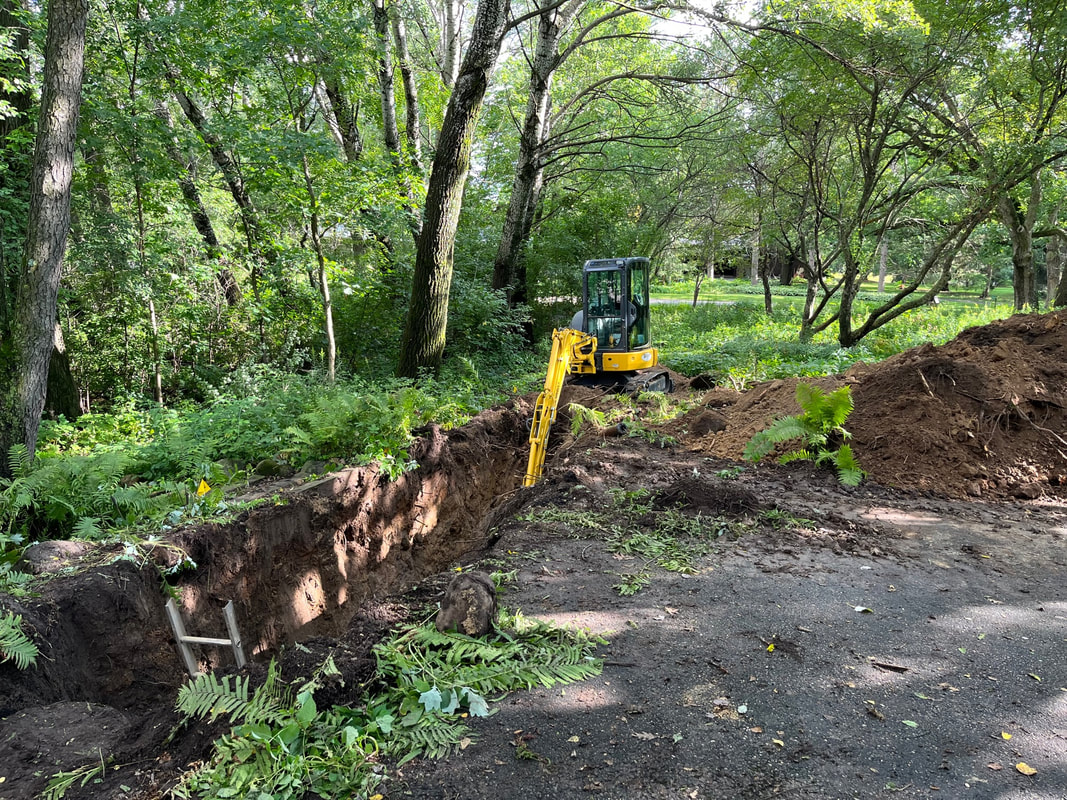|
Fifty pages into W. C. Ryan’s World War I mystery A House of Ghosts, I began to wonder if I’d read it before. Details of the island and former abbey were vividly familiar, though I’ve never seen the Devon-Cornwall peninsula. Did I once read another novel with essentially the same setting?
More than once, it turns out. My sense of déjà vu may come from P. D. James’s The Lighthouse or Agatha Christie’s And Then There Were None, set on coastal islands off Cornwall and Devon respectively. I could almost believe the islands of southwestern England exist to inspire mystery novelists. Weather or tide traps a small group whose number includes an unidentified killer. If the only access is by a causeway at low tide, suspense rises with the water level. Isolation creates tension on the mainland, too. To travel from London southwest to Penzance could take nearly as long as to Scotland. Rocky cliffs shelter smugglers and pirates; the “wink” in Martha Grimes’s The Lamorna Wink refers to a smuggler’s signal. Hikers on the coastal path risk a boulder from above (Christie, Peril at End House) or a fall to the sandy beach below (Elizabeth George, Careless in Red). Accident or murder? Bodies wash up or float away on the tide. A gothic sense of foreboding pervades crumbling coastal mansions, such as Manderley in Daphne du Maurier’s Rebecca. Farther inland is bleak Dartmoor with its ancient stone circles, deadly peat bogs, and notorious Dartmoor Prison (Arthur Conan Doyle, The Hound of the Baskervilles). I finished A House of Ghosts and returned it along with another book chosen at random from the library’s mystery shelves. The narrator in Kate Sedley’s medieval The Saint John’s Fern crosses Dartmoor and walks at ebb tide to an island, where an abbey yields a vital clue. Coincidence? Perhaps not. The setting, after all, is custom-made for murder.
4 Comments
When an aging septic system backs up into the house, metaphors for writing abound. Waste solids accumulate underground like ideas in a writer’s head. Eventually they surface. The sludge or manuscript stinks. Ernest Hemingway told a young admirer, “The first draft of anything is shit.”
To clean up the mess takes more than a scrub brush or spell check. You have to figure out what isn’t working. Even with the aid of a plumber or critique group, the answers can be elusive. Promising suggestions yield dead ends. No, last winter’s freeze doesn’t explain a blockage that recurred in August. Fixing one problem reveals another. The digger you deep, the more likely you’ll find troubles no one suspected. Who imagined a second tank lurked deep within our septic system? Who guessed one minor character created a major plot hole, or the historical mystery revolved around a technology not yet invented? With underlying issues resolved, we’ve put off till next spring deciding how to repair our landscaping. Polishing a draft, too, must wait till the major fixes are complete. Twenty-one years and a day ago, I entered a crowded hospital lounge to await an abdominal CT scan. An earlier chest X-ray of a minor bump near my collarbone had revealed another, unrelated oddity at the bottom of the image. The first was innocent; the second needed follow-up. Tired, irritated, and nervous, I found a chair as far as possible from the growing throng in front of the TV. Couldn’t they lower the volume and let me read in peace?
Not till I turned on the car radio, driving home, did I learn planes had crashed into the World Trade Center in New York City. One lifetime may include just a handful of world events so sudden and immense that practically everyone can tell you what they were doing when they heard the news. My elders spoke of Pearl Harbor that way. My first such experience was the Kennedy assassination. I was in college physics class when a knock drew the professor to the classroom door. Visibly shaken, he told us the President had been shot. Class was dismissed. Students wandered campus in a daze. We drifted gradually into the campus chapel to sit in shock together. What national or international event has left you a vivid personal memory of learning the news? Where were you, or what were you doing? Image: National Park Service, Sept. 11, 2001. Public domain. I was doing just fine with pandemic solitude, or so I believed. I’m happy as an introvert. I’ve worked at home for decades. From time to time, though, after a leisurely visit with a friend, I notice a burst of energy. My head is clearer. I perk up like the garden after rain.
On the trail walks that sustain my spirit, I can skip water for hours unaware of thirst. I start to flag from dehydration before I realize what’s wrong. Hunger reminds me if I forget to eat, but I’ve had to learn the hard way to carry bottled water. Logical thought guides only a small proportion of our decisions, I suspect. Gut feelings give us knowledge without conscious processing. They often arise quickly, drawing on unrecognized sources in our past or present. Pattern recognition? Forgotten incidents? Subliminal sensory input? Intuition is mysterious but not magical. Like reasoning, it’s a helpful brain process without guarantees. When my gut says I’m fine without water or human interaction, I’d best check with reason and experience too. |
AuthorI'm a historian who writes novels and literary nonfiction. My home base is Madison, Wisconsin. Archives
July 2024
|




 RSS Feed
RSS Feed